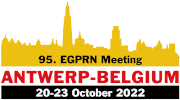Challenges and experiences of Latvian family doctors during the COVID-pandemic
Jānis Blumfelds, Vija Siliņa
Keywords: COVID-19 ; Challenges; experiences; Latvian; primary care
Background:
There has been 844 142 confirmed COVID-19 cases in Latvia up to date. Coronavirus pandemic has brought numerous challenges and necessity to adapt and innovate in health care system around the world. Primary care is usually the first point of care for people in many countries, therefore being impacted significantly. Strong primary care shields against increased mortality and differences of organisation in this field between countries may be one of the factors for different mortality rates.
Research questions:
What positive /negative changes COVID-19 pandemic brought to primary care?
What aspects could be improved upon in COVID-19 patient care and vaccination?
Method:
Qualitative study was conducted in April 2022 to find out individual experiences of Latvian general practitioners during management of COVID-19 pandemic. Using purposive sampling method 16 GPs of different age, gender, experience, and practice settings were selected; Anonymous open question survey was distributed by personal invitation via e-mail or WhatsApp.
Results:
Twelve complete responses have been collected thus far. As of positive effects, most GP’s admitted improved work organisation, rediscovered importance of teamwork and recognized revelations of possibility of remote counselling. Increased independence of patients was also noted. Financial aid for increased workload was appreciated. Among negative effects GP’s admitted burnout, increased workload, neglected non-covid patient and prophylactic care, as well as inconsistent and unreasoned recommendations on management of pandemic and suboptimal functionality of e-platforms. Changes that GP’s mentioned as positive, they mostly would like to see implemented in daily work after pandemic.
Conclusions:
COVID-19 pandemic has brought in forefront multiple positive aspects, like improved work organisation and teamwork possibilities, as well as showed the potential of remote counselling. New and existing problems in health care system organisation, workload management and E-Systems where recognized. Worry about returning to previous model of work organisation and lack of implementing ‘’lessons learned’’ in the future was present.
Points for discussion:

